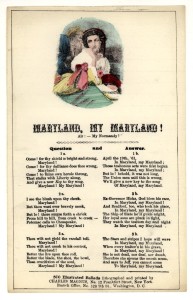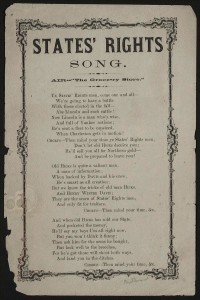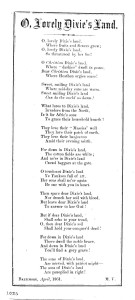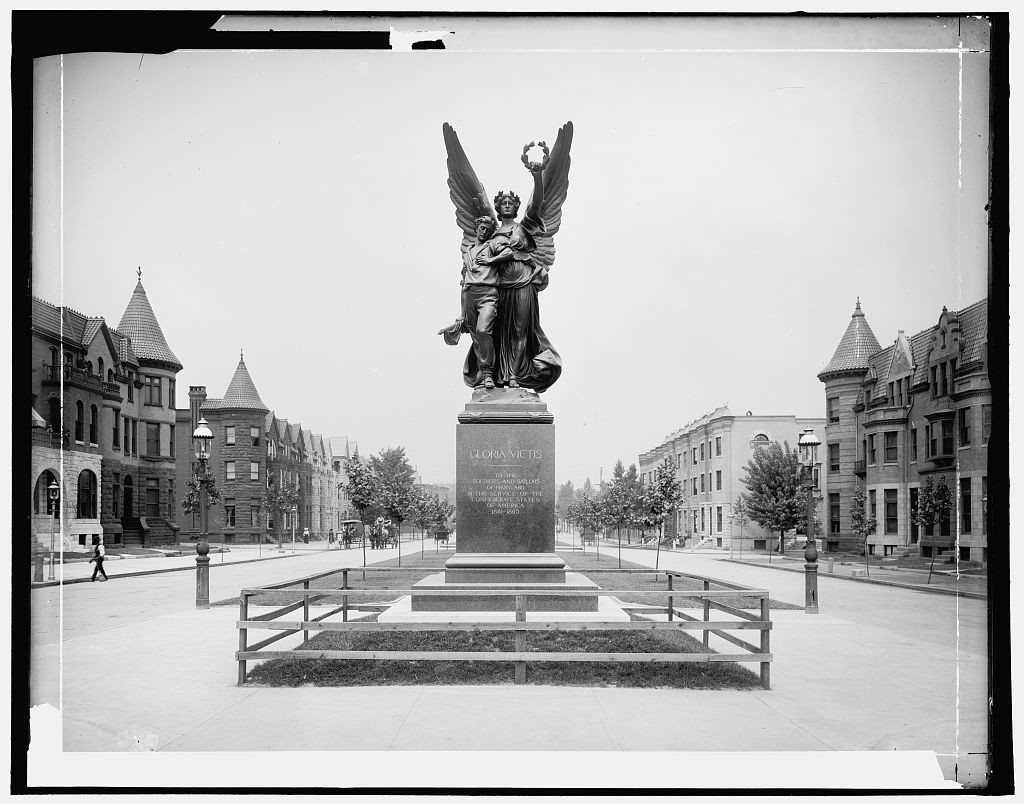150 years ago this week Gotham’s Times thought it was pretty funny that a presumed states-rights Democrat would appeal to the federal Constitution to negate Maryland’s election law.
From The New-York Times September 8, 1865:
The Democracy and State Rights.
We are among those who believe that the general government has no constitutional right to prescribe the qualifications of voters in the several States, and on that ground have sustained without hesitation the course of President JOHNSON in leaving the question of negro suffrage to the absolute discretion of each State. The Democrats readily enough accept this principle, so far as it bears upon the black man; but down in Maryland, at least, they take it in a very different spirit when it applies to the white. The new constitution of Maryland prescribes a stringent oath of loyalty to be taken by every voter, and also authorizes the Legislature to provide for the disfranchisement of all disloyal persons. This exercise of the sovereign power of the State over the electoral qualifications, has given the Copperheads of the State intense dissatisfaction. They asseverate that it is not only intrinsically despotic, but that it is a violation of that clause of the Constitution of the United States, which insures to each State a republican form of government. At length Mr. THOMAS ANDERSON, one of the disfranchised, has resolved to seek his remedy. He first makes a formal demand that his name shall be registered as a legal and qualified voter, without taking the oath required by law. His language is:
“In making this demand, I pronounce so much of the new constitution, and the act of the Legislature, as confer upon you these despotic powers over the dearest rights of your fellow-citizens, to be null and void; as glaring usurpations of power, unwarranted by the fundamental principles of free government, and directly in conflict with the letter and spirit of several clauses of the Federal Constitution, which I regard as the paramount law of the land. In the event of your declining, at once, to register my name as a legal voter, I protest against your usurpation of power, and shall claim the protection of our National Constitution by all lawful means at my command.”
He has already applied to a State court for the issue of a mandamus that his name shall be registered; and, in case it is refused, will, as he declares, appeal to the Supreme Court of the United States. If he gets his case there, it will be a rare spectacle: a sympathizer with a rebellion, made in the name of State rights, calling upon the National Government to annul the exercise of what his own party declares to be the most indisputable of all those rights — the exclusive regulation of domestic suffrage. But for all that, his party in Maryland, with characteristic consistency, makes common cause with him.
In the first few pages (7-10) of The Maryland Constitution of 1864 (1901) William Starr Myers recapped what it was like to be the Border State Maryland from 1860. The seed of slavery vs. freedom contention was planted in the U.S. Constitution as ratified in 1788. The doctrine of State’s Rights veiled this contention, but the Civil War was finally fought to settle the question. Maryland “united within her borders” both the slave system in the south and “practically free labor” in the north. Baltimore was a “seething cauldron of divided political sentiment.” Maryland reflected the “bitter strife” in the nation at large. The federal government often interfered in Maryland affairs because Washington could not become totally surrounded by rebel states. This federal intervention became even more urgent because a majority of Marylanders “were strongly opposed to coercing the South.” In 1860 there were “83,942 free negroes and 87,189 slaves.” By early 1862 “the institution of slavery in Maryland became utterly demoralized. The master lost all control over his slave.” “Although useless for all practical purposes, [slavery] was by no means dead politically.”
.
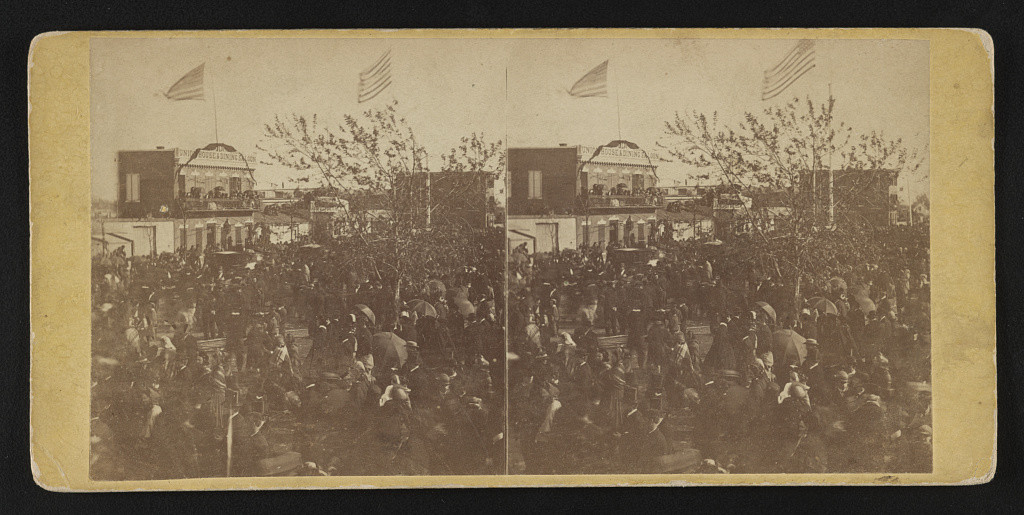
“Crowd at the Baltimore depot before the funeral arrived” (President Lincoln’s funeral, April 21, 1865 (Library of Congress)
The Library of Congress provides the images of My Maryland, States rights song, Dixie’s Land, , funeral crowd, and Confederate monument

